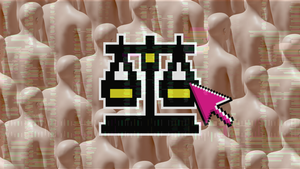US performer union SAG-AFTRA has welcomed the passing by the California Senate of a new ‘digital replica’ law that will require studios to seek specific approval before using generative AI to replicate the voice or likeness - the image or physical appearance - of performers.
The new law is “a huge step forward”, according to the union’s Executive Director Duncan Crabtree-Ireland, who adds, “Voice and likeness rights, in an age of digital replication, must have strong guardrails around licensing to protect from abuse. This bill provides those guardrails”.
Many contracts between performers and studios or labels contain wide-ranging clauses regarding likeness rights. Those clauses are meant to allow the release and marketing of specific productions, but actors and musicians fear that some studios and labels might claim those clauses allow them to generate digital replicas of a performer's likeness or voice without getting explicit permission.
Under the new law, contract terms that allow a studio or label to generate digital replicas of a performer will need to include a “reasonably specific description of the intended uses of the digital replica” to be enforceable.
When the new law was first proposed, the Motion Picture Association opposed it, arguing that the legislation as it was first drafted would hinder common post-production practices. However, amendments were made that resulted in the MPA dropping its opposition.
The law was initially passed by California’s Assembly in May, after which the bill was passed to the state Senate. The Senate made a number of amendments to the law and, as a result, the Assembly will need to vote again on the final draft. Assuming that goes through then the new measures will go to California Governor Gavin Newsom to be signed into state law.
There has been much debate over how existing and new laws can help performers protect their likeness and voice as AI becomes increasingly sophisticated at creating voice, image and video.
In the US, SAG-AFTRA has demanded new contractual protections relating to AI in union-negotiated agreements for its performer members. Last year the union took strike action against the movie and TV studios in an attempt to secure those protections, and more recently implemented a similar series of strikes targeting the video games industry.
Alongside that, the union has also been lobbying for new protections in law. Commenting on the new measures in California, SAG-AFTRA General Counsel Jeffrey Bennett says, “We’re looking to make sure people who aren’t currently covered by one of our agreements are protected. We don’t want to see the next generation of performers lose all rights to voice and likeness because they don’t have any leverage or ability to effectuate fair terms”.
The union is also supporting a second proposed new law in California that would stop studios generating digital replicas of deceased performers without the permission of their estates.
In addition to new state level laws - like those in California - law-makers at a federal level are also considering new regulation around digital replicas, with the No AI FRAUD Act that was introduced into the House Of Representatives in January, and NO FAKES Act, which was formally introduced into the Senate last month.

